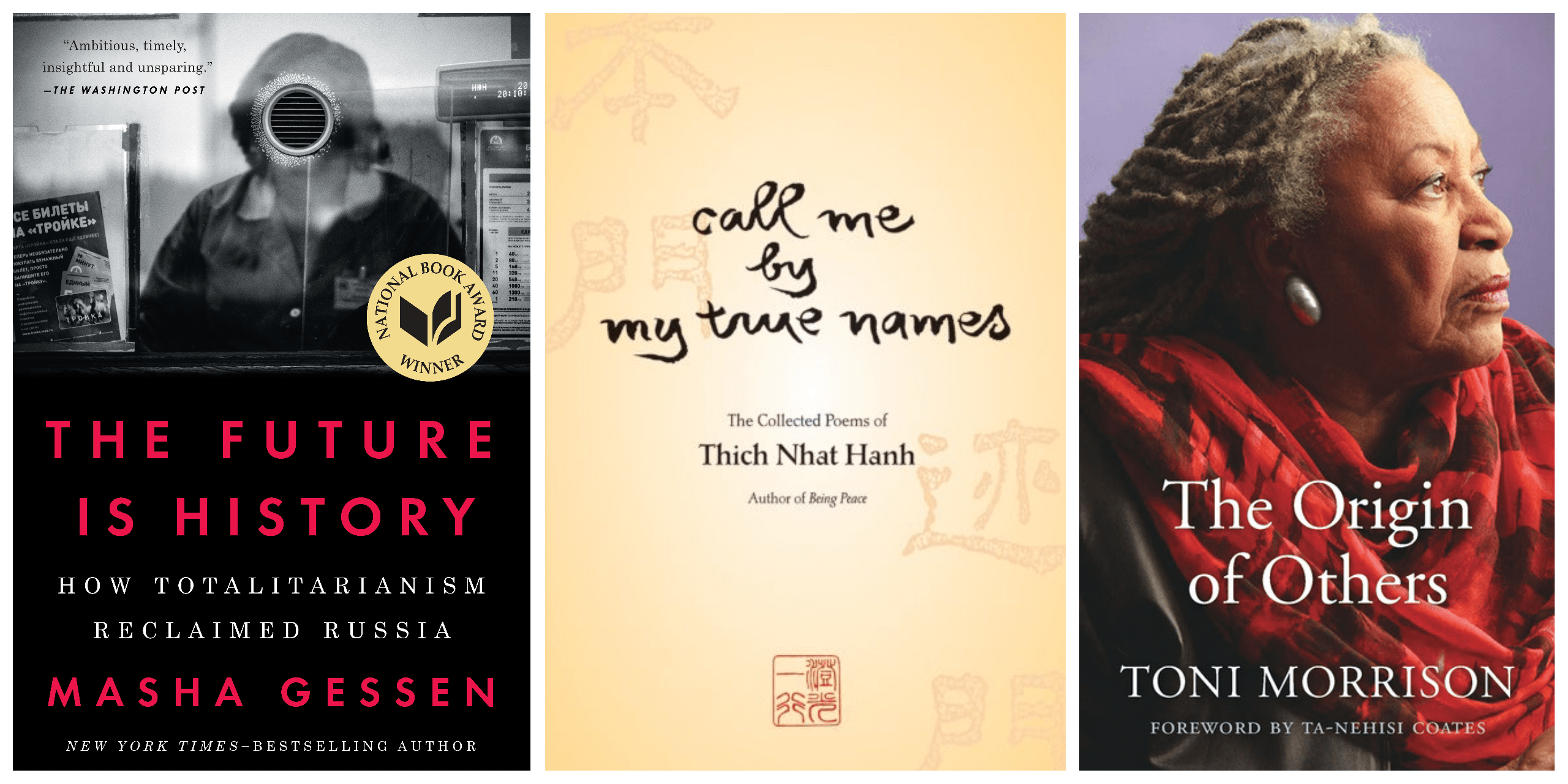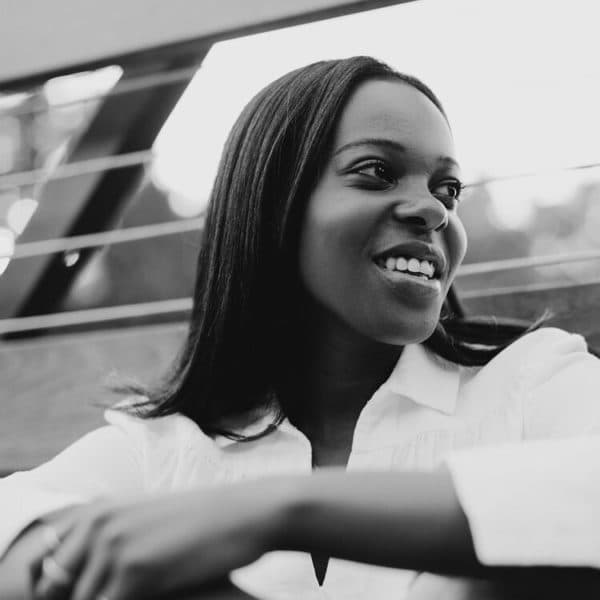Advertisement
The WBUR Read-In: Bearing witness

Welcome to The Read-In, a series of book recommendations tied to topics happening in the news and the world around us. With war, a rise in anti-Asian violence, and the ongoing pandemic, the world feels really fractured at the moment, and this first installment is on bearing witness: to see, learn, hear and tell.
The other week, I found myself strolling through the “European History” section at my local bookstore. Between the rapid news cycle, takes on Twitter, and YouTube explainer videos, I was feverishly trying to understand the war in Ukraine. I needed a minute to slow down and absorb information. I picked up a few books and dove into some self-investigation on my walk home. “What’s the point?” I thought. There’s so much suffering. What does reading up on a subject do? It felt self-serving. I mulled it over for a while and realized that while learning and understanding will not change the material conditions of those living through strife, perhaps it can allow us to meaningfully bear witness. The idea of bearing witness goes beyond seeing. It carries with it the intention to tell what you have seen. I think it’s important to attempt to do just that, not for our own memory, but to pass the stories on so that as time rolls on, rhyming with the past, future people may be better equipped to understand.
You can expect these roundups every two weeks. Some installments will be light and fun, others a bit heavier. I’ll do my best to provide a mix of slow burns, page-turners, the intriguing and the sensitive. Let’s get reading.
'The Future is History'
By Masha Gessen
Last month, WBUR’s Hafsa Quraishi and Rupa Shenoy reported on Yakov Kronrod’s attempt to bring his grandmother to the U.S. from Moscow as the war began, where they touched on the idea that sanctions have forced some national conversation about the war. In the interview, Kronrod said, "I think the reality is, unless something can change here in Russia, then history is doomed to keep repeating itself.” You can explore this theme on a deeper level in “The Future is History” by award-winning journalist Masha Gessen. In it, Gessen provides a thorough history of the last four decades in Russia. But this is not a textbook. Equally sensitive and chilling, it’s a textured retelling of the lives of seven Russians born at a time of rapid change.
'The Origin of Others'
By Toni Morrison
Everything Toni Morrison writes is golden, but this quick read, drawn from her series of Norton Lectures at Harvard University, is distinctive. It's a moving investigation of the social constructs in the U.S. that produce our ideas around the other, the foreigner. “...There are no strangers. There are only versions of ourselves, many of which we have not embraced,” says Morrison. By pulling from popular literature and scholarship, Morrison asks us to confront our fears about those who we deem different from ourselves. More importantly, she asks us whether or not those fears are actually our own.
'Call Me By My True Names'
By Thích Nhất Hạnh
Thích Nhất Hạnh was a Vietnamese Thiền Buddhist monk, an author, and an activist. He was a fierce defender of human rights and rose to prominence during the Vietnam War, during which he traveled to the U.S. and Europe to make a case for peace. After this, he became a refugee, exiled from his home country. “Call Me by My True Names” is a collection of more than 100 poems Nhất Hạnh wrote over the span of 40 years. The Zen master and poet is at his best in his anti-war poems. The 20th poem in the series, “Flesh and Skin, Bricks and Tiles,” is especially prescient: “this child/ whose laughter once resounded/ across Spring fields/ whenever the evening bell was struck in the temple;/ this child— / is it true/ this child has been cruelly stripped of his right /to become a man?”
Additional reading:
- A powerful daily journal (currently on pause) from Ukrainian writer Yevgenia Belorusets.
- A fascinating Twitter thread on 1920s Ukrainian modernist writers from journalist Bohdana Neborak.
